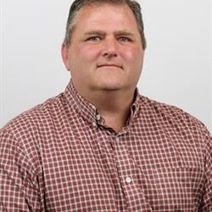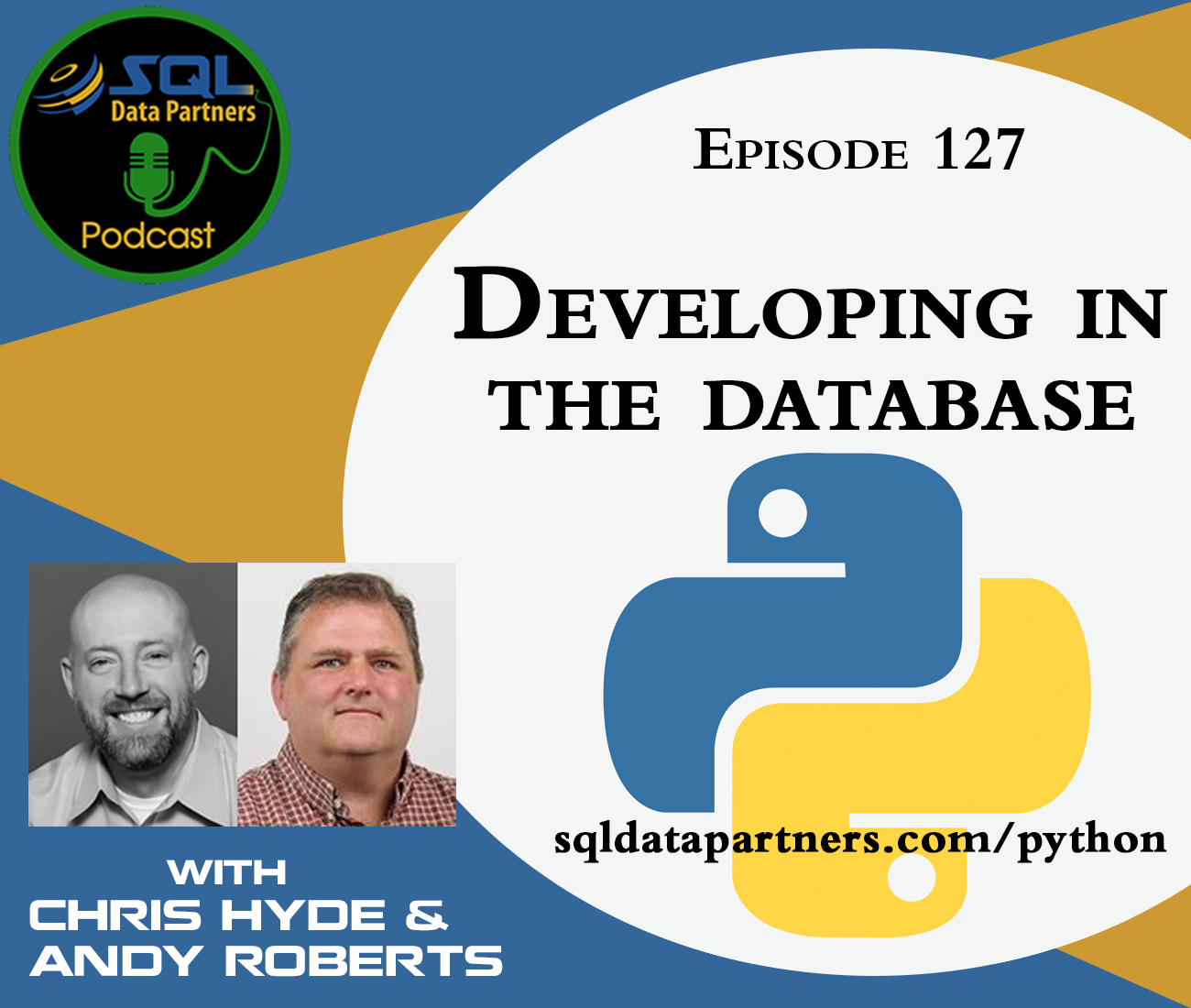Developing in the database
There has been a remarkable shift introduced in the new features of SQL Server–programming languages have been embedded into the database. This has led to a few “What are you thinking” questions from myself and others. It also opens new opportunities for those working with SQL Server and in this episode, I chat with Andy Roberts and Chris Hyde and discuss the new features of R and Python–why they are included, how data teams are changing, and what this means for the rest of us. As someone who does not and has not ever considered themselves a programmer, I don’t try to tackle any of the technical challenges of the language. We stay safe on the side of ideas, process, with a sprinkle of installation and setup.
One of the most compelling ideas from this conversation is the democratizing of data. Sure, this is not a new concept; however, now with a programming language in the database it will force a thinking realignment for those that traditionally called themselves gatekeepers. Where CLR couldn’t quite do the trick, I think the introduction of these languages is going to require increased collaboration with teams and force administrators to up their game as they tackle challenges of data distribution and data consumption.
I am interested to see what lies ahead and how consumers will use these new features. We already have some insights into R and while I won’t call it a smashing success—it is certainly useful to those who know how to take advantage of it and those numbers appear to be growing. With Python, I think we are increasing the breadth of those who can take advantage of analytics in the database, which I think only bodes well for those who enjoy working with SQL Server.
What about you? Is your team trying to implement R or Python? What new skills have you had to learn because of these changes? Hit me up on social media or in the comments below.
Microsoft’s AI Courses: Aischool.microsoft.com
Episode Quotes
“I think that one of the main beneficiaries that doesn’t get a lot of press is actually pushing the predictions out into an edge server that’s not your main data science server.”
“Getting people into SQL Server and then executing R and Python code, which is kind of the language of data science, allows people to solve some of these problems in a little bit more team oriented way.”
“It becomes more and more important to be able to work within the team system, so you need to know enough to be able to talk to the data scientist on your team.”
“Analytics is an increasing part of the [business intelligence] pie.”
Listen to Learn
00:41 Intro
02:11 Compañero Shout-Outs
04:00 Tips & Tricks
04:38 Conference
05:11 SQL Server in the News
07:41 Intro to the guests and topic
10:18 R is a data-focused language
13:48 Who is the biggest beneficiary of these features
17:22 Who is responsible for creating the model
20:44 Did you start out on business intelligence
22:38 Domain knowledge is going to separate technology folks
24:15 You need at least a base-level knowledge of statistics
27:24 Where should all of this data reside
30:28 Are more new features coming
31:35 Analytics are an increasing part of the pie
34:44 Technical components of R and Python
36:00 Are the Python and R files sitting outside the database
37:57 Install packages properly so everything is picked up
39:12 It’s easy to find resources to learn data science
40:51 SQL Family Questions
49:46 Closing Thoughts
Credits
Music for SQL Server in the News by Mansardian
Our Guests

Andy Roberts
Andy Roberts is a currently a Data Platform Specialist for Microsoft in the Northeast district and has spent 12 years as a consultant for Microsoft Consulting Services. As a consultant Andy assisted customers in implementing mission critical OLTP and DW/BI solutions on SQL Server. Andy wore many hats as a consultant including application developer, solution architect, mentor to development teams, mentor to DBAs, BI lead, SCRUM Master, and the guy-that-knows-a-bunch-of-stuff-about Microsoft.

Chris Hyde
Chris Hyde is an independent SQL Server BI and DBA consultant based in Albuquerque, NM, and is the leader of the Albuquerque PASS local user group. He is a part of the Friends of Redgate program and was recently named in the Idera ACE class of 2018. He loves loud music and cricket, but not usually at the same time.
Meet the Hosts

Carlos Chacon
With more than 10 years of working with SQL Server, Carlos helps businesses ensure their SQL Server environments meet their users’ expectations. He can provide insights on performance, migrations, and disaster recovery. He is also active in the SQL Server community and regularly speaks at user group meetings and conferences. He helps support the free database monitoring tool found at databasehealth.com and provides training through SQL Trail events.

Eugene Meidinger
Eugene works as an independent BI consultant and Pluralsight author, specializing in Power BI and the Azure Data Platform. He has been working with data for over 8 years and speaks regularly at user groups and conferences. He also helps run the GroupBy online conference.

Kevin Feasel
Kevin is a Microsoft Data Platform MVP and proprietor of Catallaxy Services, LLC, where he specializes in T-SQL development, machine learning, and pulling rabbits out of hats on demand. He is the lead contributor to Curated SQL, president of the Triangle Area SQL Server Users Group, and author of the books PolyBase Revealed (Apress, 2020) and Finding Ghosts in Your Data: Anomaly Detection Techniques with Examples in Python (Apress, 2022). A resident of Durham, North Carolina, he can be found cycling the trails along the triangle whenever the weather's nice enough.
Want to Submit Some Feedback?
Did we miss something or not quite get it right? Want to be a guest or suggest a guest/topic for the podcast?
